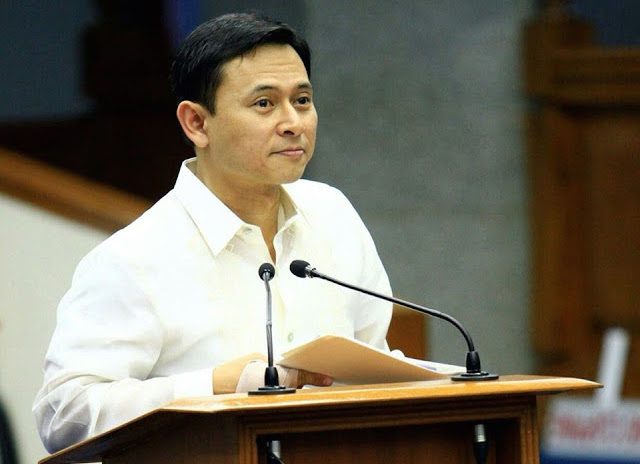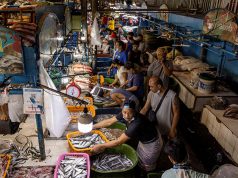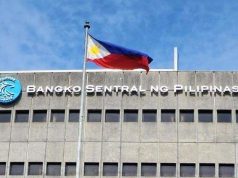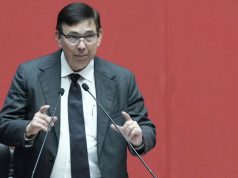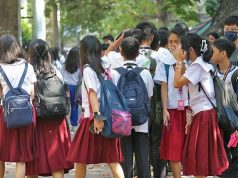MANILA – Starting 2018, workers with a take-home pay of less than P250,000 annually will be exempted from payment of income tax. This, after Senate ways and means committee chief Sen. Juan Edgardo Angara accepted an amendment raising the exemption ceiling from P150,000 to P250,000.
The amendment was proposed by Senate President Pro Tempore Ralph Recto as senators resumed plenary deliberations Wednesday on the House-approved version of the Duterte administration’s tax reform package.
As a result of the amendment approved Wednesday, the tax relief will be given in one blow, no longer on staggered basis as first outlined in Angara’s proposal as the main sponsor of the Senate version of what’s billed the Tax Reform for Acceleration and Inclusion (TRAIN).
The higher exemption ceiling for income tax will also cover professionals and the self employed, and the informal economy, so that even sari sari store owners or traders in merchant hubs like Divisoria can enjoy it.
Angara said the amendment will substantially boost the take home pay of workers starting next year, if it is enacted.
Right now, the exemption from income tax only applies to the minimum wage earner. The current setup is so regressive that many compensation income workers would rather decline salary hikes as these could only result in bloating the taxable income but have no impact on take-home pay.
Progressive rates
Workers earning P250,000 and above annually will be paying different rates, calibrated as income rise, but lawmakers said the new brackets are still more progressive than the existing tiers.
For example, those earning over P250,000 but not more than P400,000 will pay tax of 20% of the excess over P250,000.
Revenue goals on target: Angara
In a statement issued just before the plenary deliberations began, Angara said the Senate version of TRAIN has met the revenue goal of the government after the ways and means committee chairman introduced his amendments to Senate bill 1592.
Based on the estimates by the Department of Finance (DOF), SB 1592, taking into consideration the proposed amendments, would yield P159.5 billion in revenue—a hundred billion more than the previous revenue estimate of P59.9 billion.
“We were able to meet the revenue target using the more comprehensive and accurate data that the DOF has provided the committee after the filing of the committee report,” said Angara.
The revenue boost was significantly sourced from the amendments to the provisions on the expansion of the value-added tax (VAT) base. From the repeal of certain VAT special laws alone, the estimated revenue gain is raised from P14 billion to P45.5 billion.
Another major source of revenue is the doubling of the prevailing documentary stamp tax rates which will approximately yield P40 billion.
Documentary stamp tax is a tax on documents, instruments, loan agreements and papers evidencing the acceptance, assignment, sale or transfer of an obligation, right or property incident thereto.
These include stamp tax on bank checks which will be doubled from P1.50 to P3; on original issue of shares of stock, P1 to P2; sales or transfer of shares of stock, P0.75 to P1.50; certificates of profits or interest in property or accumulations, P0.50 to P1.
Such amendment was first brought up by Recto during the period of interpellations.
“The stamp tax rates are already due for updating since such rates were set two decades ago just like our income tax rates. This increase in stamp tax rates will also improve the progressivity of the tax reform package, as this will mostly affect the rich who have the ability to pay additional taxes,” Angara said.
Angara explained that the ways and means committee sought to come up with a version of the TRAIN bill that would raise the take-home pay of Filipino workers by providing tax relief to 99% of individual income taxpayers and, at the same time, meet the revenue target so as not to impair the government’s capability to finance its programs and projects.
The Senate version likewise provided more specific earmarking provisions so that revenues will be allocated to programs that will directly benefit the poor. These include the funding of the free college law, unconditional cash transfer for the bottom 50% poorest households, free medicines for poor families and feeding programs in areas with high incidence of hunger, infrastructure programs to address congestion and improve mass transport, among others.

